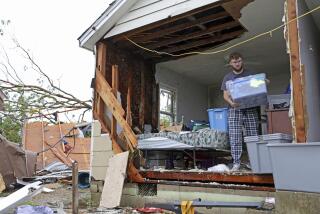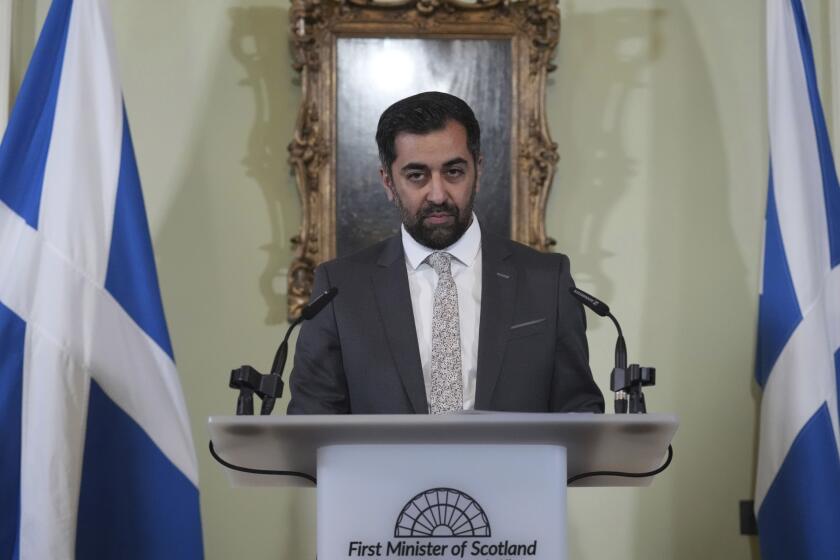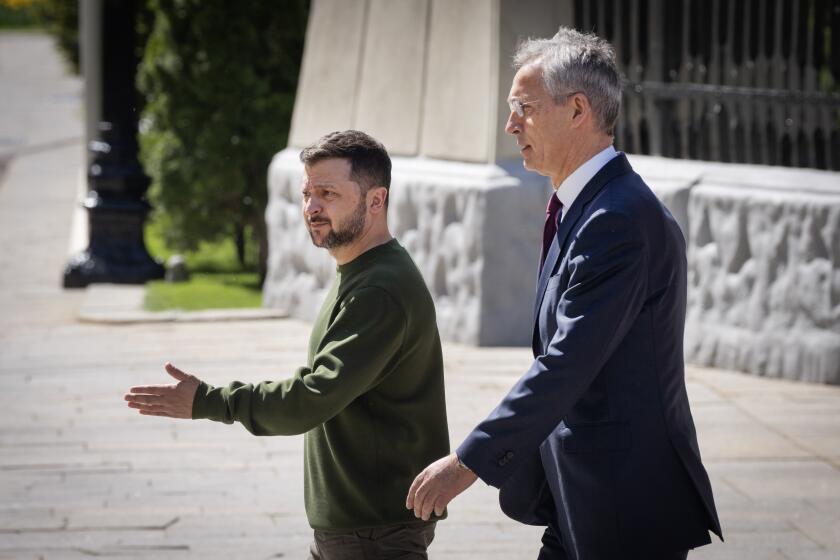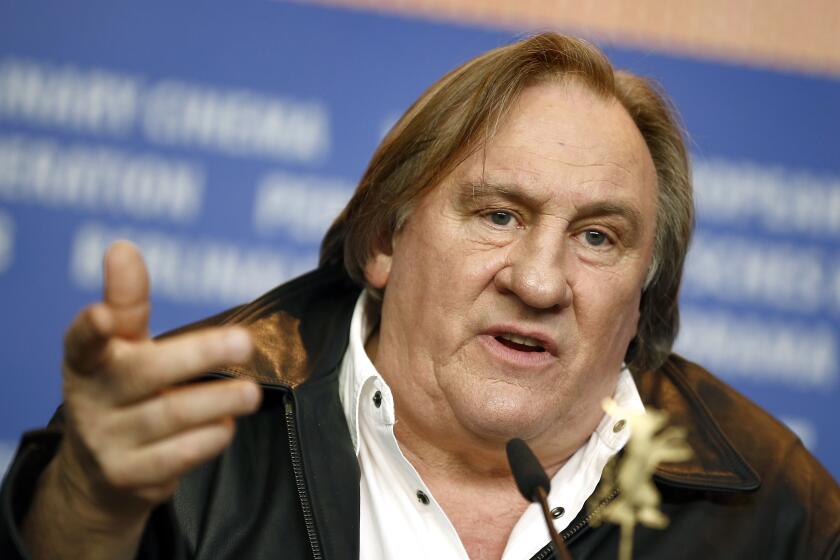PERSPECTIVE ON NORTH KOREA : A Spark That Might Ignite : U.S. policy is mired in Cold War illusion. Pull out our troops before they become hostage to hair-trigger hostilities.
An incident is some occurrence that may be trivial or serious, but that has effects wildly out of proportion to the actual damage done. Thus we speak of a terrorist “incident” when a bombing or assassination sets in motion a train of events that would not normally be expected given the limited nature of the actual assault. The assassination of the Austrian crown prince in 1914 led to World War I; the refusal of the Cossacks to fire on the people of St. Petersburg in 1917 led to the Russian Revolution. The downing of a U.S. helicopter by North Korea may also be such an incident.
The pattern of events in the Pacific since the end of the Cold War five years ago has been one of drift. Old Cold War alignments disguise the extent of the shift in the global balance of power to Asia. American military deployments add up to armed impotence under the new situations, and Americans are ill-prepared to cope with this development. Meanwhile, what passes for strategic thought is largely public-relations posturing, bureaucratic infighting over turf and the pretense of competence by political officials in the main Pacific powers.
Other likely candidates for a catalytic incident include the imminent death of Deng Xiaoping in China and the reversion of Hong Kong to mainland Chinese rule in 1997. But the Korean situation is, and long has been, a potential powder keg.
The United States became involved in Korea 45 years ago not because of a Korean civil war but because of the influence of the former Soviet Union and China on the peninsula and our belief that communist aggression in Korea was part of a global advance of communism into any susceptible society. We fought on the side of the Republic of Korea against armies from the North because North Korea’s backers were the Soviets and China. But since the Seoul Olympics of 1988, the Republic of Korea has had friendly relations with both Russia and China and now has formal diplomatic ties with both. Because of the war of 1950-53, we have ignored North Korea’s claims of legitimacy which it gained in the struggle against its former Japanese overlords and, as elsewhere in Asia, we refused to see that Asian communism was largely a vehicle for anti-colonial nationalism. Our presence in Korea is still locked in a Cold War mold. We have 37,000 front-line troops there, and North Korea has been trying to catch our attention by developing nuclear weapons.
Earlier this year, North Korea’s intransigence over nuclear weapons looked like it would be the incident that would finally begin to alter Cold War arrangements in East Asia. Through adroit diplomacy and by beating back Pentagon enthusiasts for “surgical strikes,” the United States seems to have defused a nuclear confrontation--even though we still do not know exactly what happened. All we know for certain is that Kim Il Sung saw Jimmy Carter and died. We are still waiting to find out whether that was a natural death and we must remain alert to the probable instabilities of a successor regime in Pyongyang headed by Kim’s son.
But one thing is clear: The United States no longer has any reason to intervene in a Korean civil war.
The Republic of Korea has twice the population and 10 times the productive power of the North, from which come repeated reports of starvation among the population. Seoul should be fully capable of defending itself in any conflict not involving external powers or nuclear weapons.
The United States should continue to guarantee the Republic of Korea’s security from nuclear attack but American ground forces should be withdrawn. Many American analysts agree but always add that the present time is not appropriate. They fail to note that there will never be a perfect time. To leave U.S. ground forces there makes them hostage to possible events over which they have no control. The unification of Korea is today a topic of Korean politics. We can help, but we should not be caught in the middle.
This is the significance of the downing last week of a U.S. Army helicopter that had strayed into North Korean air space. The pilots probably did not know where they were; but they had no real business being in Korea at all, and were not ready for the kind of hair-trigger mentality that exists along the Korean demilitarized zone. They were there because of Pentagon inertia and the lack of any kind of American strategic vision for post-Cold War Asia. One pilot died. When President Clinton said, “This tragic loss of life was unnecessary,” he did not know how close to home the responsibility for that death actually lies. Unless the United States reconceives its military, political and economic role in Asia, either this incident or some other one will prove to be the detonator for a larger, more serious explosion.
More to Read
Start your day right
Sign up for Essential California for news, features and recommendations from the L.A. Times and beyond in your inbox six days a week.
You may occasionally receive promotional content from the Los Angeles Times.






